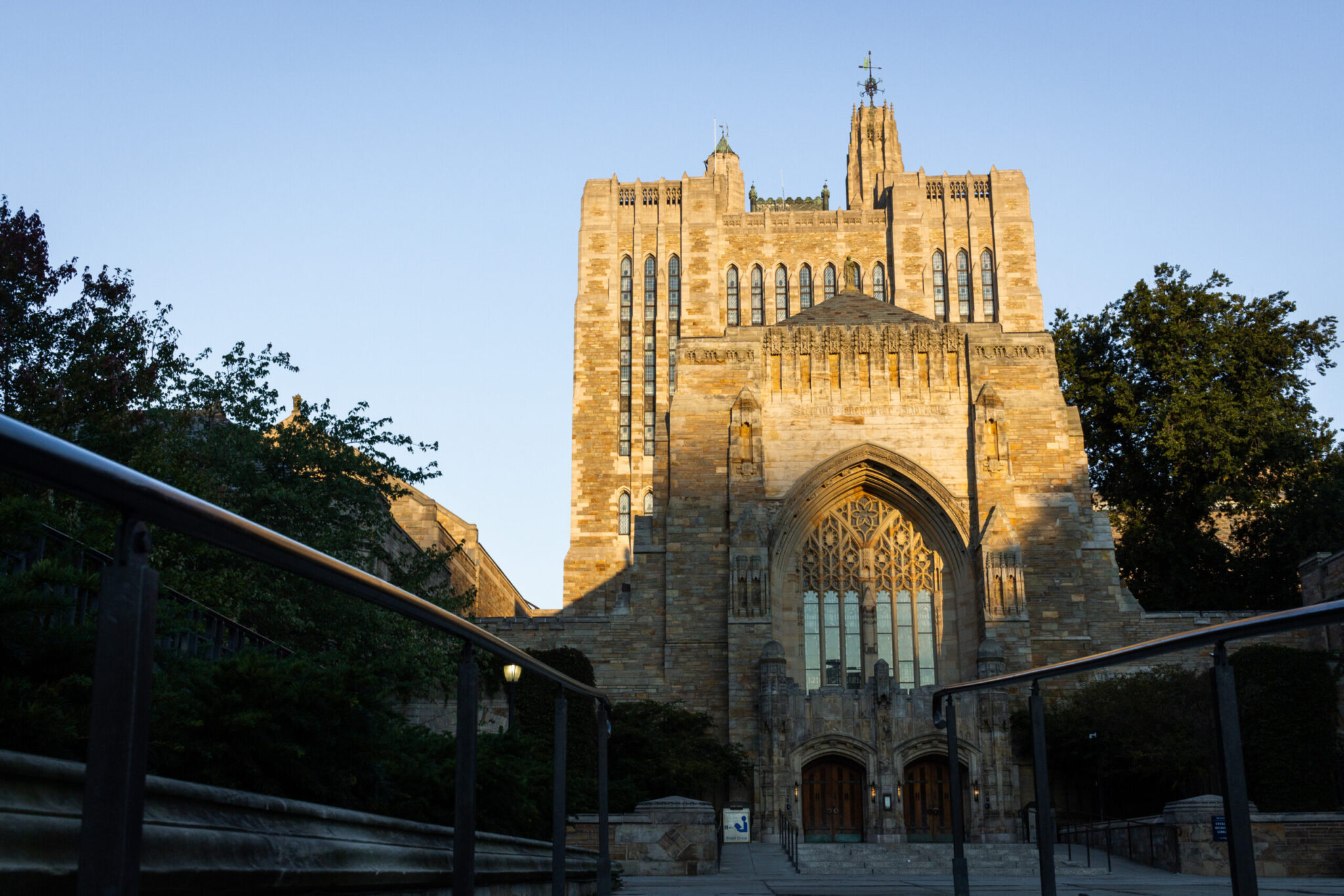Tuition hikes continue to outpace inflation, admin say financial aid rising concurrently
As costs rise by nearly 4 percent for the 2023-24 academic year, University administrators told the News that financial aid packages rise concurrently with tuition hikes, which were attributed to inflation.

Daniel Zhao
The Yale College 2024-25 term bill will increase to $87,150, up by 3.9 percent from the current $83,880.
The term bill includes tuition costs, which will rise to $67,250, and room and board for students who live on campus, which will rise to $19,900. The 2023-24 tuition was $64,700, and the room and board was $19,180.
Despite the increase, University administration confirmed its commitment to financial aid and affordable tuition for students.
“People have difficulty understanding the relationship between the sticker price and the actual cost to them of an education at Yale,” University President Peter Salovey said. “We have to do a better job communicating that difference.”
Tuition costs have risen “mostly due to inflation,” Dean of Yale College Pericles Lewis told the News. Twenty years ago, tuition was $29,820, and in 2014, tuition was set at $44,000. Ten years later, tuition now stands nearly $25,000 higher.
But, Lewis said, the costs of higher education rise at higher rates than the national inflation rate. Indeed, tuition has doubled in the last decade even though $100 in 2014 would be worth only about $127 in 2024.
Lewis said that tuition costs cover roughly one-fourth of Yale College’s total costs, with the endowment covering half and research grants and other funding covering the last quarter.
The total budget to run the University is about $5 billion, Lewis said, citing the 2022 Yale budget report, but “the ratios haven’t changed all that much” as tuition has grown.
Lewis said that the largest expense for Yale College is salary and benefits, from both faculty and staff salary, which make up about half of the budget.
In April 2022, Salovey’s For Humanity capital campaign — the University’s fourth and most ambitious fundraising effort — announced a $1.2 billion fundraising goal as part of the $7 billion campaign. In October, Eugénie Gentry, associate vice president for development and campaign director, referred to this announcement as the beginning of a larger marketing effort called “Be the Key,” which has yet to publicly launch.
By the April announcement, the figure raised for this effort was greater than $603 million and included gifts that have allowed Yale to offer universally free tuition at the David Geffen School of Drama and need-based, full-tuition scholarships to students at the Divinity School.
“Yes, it’s true that for a family where they don’t qualify for any financial aid from Yale, they are going to pay more to be here and those tend to be families in the top couple of percent of the income distribution,” Salovey said. “For any other family, when tuition goes up, they should feel that that increase will be taken care of by increased financial aid and more.”
Among the challenges of leading an institution like Yale is the public’s distrust of higher education because of the belief that it is not affordable, Salovey told the News in September.
He added that, at present, Yale is “more affordable than ever” because of its generous financial aid programs. However, Salovey said that this is a “very hard” message to communicate to the general public because “many colleges and universities can’t provide those funds,” which Ivy League universities and other member institutions of the Association of American Universities can provide.
Politics, Salovey also said, complicates this message even more, making it more challenging to “champion what’s great about universities.”
“All of that exists in a very polarized political climate that makes it difficult for a university in so many ways,” Salovey said in September. “What we really need is a pride in our university college and university system which I think is second to none in the world and, unfortunately, for various political reasons, universities are [often] attacked [which] has made it harder to run a university.”
Despite an increased sticker price, the University emphasized that Yale College’s need-based financial aid will not be affected.
“If a family’s financial circumstances stay the same, their net cost will stay the same,” Kari DiFonzo, director of undergraduate financial aid, told Yale News last month.
Yale’s undergraduate financial aid budget has more than tripled since the 2007-08 academic year, according to Jeremiah Quinlan, dean of undergraduate admissions and financial aid. For the 2023-24 academic year, the financial aid budget was $241 million.
According to Quinlan, Yale is one of only eight American colleges that does not consider a student’s financial need when evaluating them for admission and meets every student’s demonstrated financial need without loans.
Yale’s need-blind status was challenged in a recent lawsuit alleging that the University — along with 16 peer institutions — was part of a price-fixing cartel. The University settled earlier this year but denied any allegations of wrongdoing.
The admissions office’s top priority in its outreach work is raising awareness about Yale’s affordability and need-based financial aid, according to Mark Dunn, senior associate director for outreach and recruitment at the Office of Undergraduate Admissions.
Dunn pointed to Yale’s college cost estimation tool, MyinTuition Quick Cost Estimator, which he said has been useful in helping families understand the difference between Yale’s sticker price and the price they will actually pay. More than 50,000 net price estimates were generated using the tool last year, according to Dunn.
Additionally, since 2013, the admissions office has run a postcard campaign for prospective students from low- and middle-class neighborhoods. The campaign advertises the extent of Yale’s need-based financial aid policies. Dunn told the News that he believes the campaign is largely responsible for the increase in applications from lower-income students over the past decade.
“Sharing Yale’s commitment to affordability is the top communications priority for the admissions office in all of our outreach work,” Dunn wrote.
The University’s endowment was $40.7 billion in 2023.







